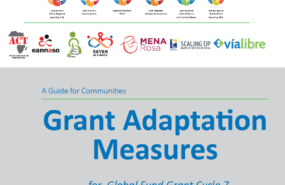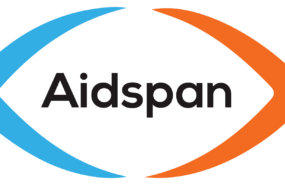Georgia: Benchmarking sustainability of the HIV response among Key Populations in the context of transition from Global Fund support to domestic funding
- 08.10.2021 15:15
- Post Views: 340
The assessment of the fulfilment of key public commitments with respect to the sustainability of the HIV response for key populations in the context of transition from Global Fund support in Georgia was conducted based on the Methodological Guide and Transition Monitoring Tool (TMT) developed by EHRA . The assessment aims to assist key affected communities to stay informed and engaged in the monitoring of the transition process and to thereby advocate for the sustainability of national HIV responses.
Findings of Transition Monitoring:
Domain: Results, Impact and Outcome: The transition progress achievement score for three commitments was above 100% which indicates that Georgia has overachieved its goal to control the spread of HIV among the general population and to reduce HIV incidence and AIDS-related mortality. However, progress achieved in terms of containing the HIV epidemic among key populations was impossible to monitor given that no integrated biological-behavioural survey (IBBS) among key populations were conducted during 2019-2020.
Health Domain 1: Financing: The average score for fulfilling commitments under the Financing Domain was set at 67% which implies that average progress was achieved by the government. However, the reliability of the financial data sources used may be questionable. Some indicators measuring the commitments may not capture the real picture in terms of increased financing; while the percentage share of public funding out of total HIV spending has been on the rise, government spending expressed in absolute numbers has declined over the last three years.
Health Domain 2: Drugs, supplies and equipment: The Government has achieved significant progress (with an achievement score of 85%) to ensure the uninterrupted supply of ARVs, OAT medications as well as HIV prevention commodities. However, the ARV prices procured in Georgia remain much higher than reference pricing. Taking into account the budgetary limitations for the healthcare system in Georgia, it can be assumed that overspending on ARVs may limit the fiscal space available for the HIV response. Thus, it seems to be critical to optimise the procurement of ARV drugs to avoid overspending and to make sure that limited resources available for the HIV response in the country are spent most efficiently. In addition, a few episodes of stock-outs of HIV prevention commodities were observed in 2020 that may have been caused by external factors, namely the COVID-19 pandemic and restrictions in transportation and international shipping.
Health Domain 3: Service provision: A high degree of progress in fulfilling the commitments to increase access to HIV services for key populations was documented, with an overall achievement score of 98%. However, this assessment does not provide evidence that no risk to sustainability of services can be expected. The Global Fund support still plays a critical role in expanding or maintaining the scope and scale of HIV essential services provided to key populations, including PLHIV, MSM, PWID, and SW. So far, limited evidence (if any) is available to believe that low-threshold services run by civil society organisations (CSOs), specifically needle and syringe programmes (NSP), community outreach, care and support services, including material support services for key populations, will be sustained beyond the cycle of Global Fund support. There is a declared political commitment from the government about sustainability of all components of the HIV prevention programme, though this declaration has not yet been substantiated with commensurate funding for certain programmatic areas.
Health Domain 4: Governance: A fairly low degree of progress has been achieved by the Government in terms of good governance, with a transition progress achievement score of 27%. The current government, similar to the previous one, has failed to amend punishment-based drug legislation and to create a conducive legal environment. This may jeopardise the sustainability of harm reduction services that currently operate without any legal basis. Adoption, and approval, of HIV prevention service standards for key populations has not been fully realised: only service guidelines had been approved in 2020; approval of service protocols has been delayed; and the costing of HIV prevention services has not yet been developed.
Health Domain 5: Data and information: There is a declared political commitment from the Government about ensuring the sustainability of the second-generation surveillance studies among key affected populations; however, no investments have been made by the Government until now to progressively absorb the cost of IBBS/population size estimate (PSE) studies. Perhaps the Government has been slow to invest in research because there has been constant support from the Global Fund to cover the cost of IBBS and PSE among key population groups.
Health Domain 6: Human resources (HR): No progress (achievement score of 0%) has been achieved. It seems that addressing the challenges related to human resources in health, including in the HIV field, has not been perceived as a priority issue by the government. There were few interventions proposed in the Transition Plan, such as adopting a policy for the continuous professional development of human resources for HIV/AIDS; defining professional competencies and qualification frameworks for various specialists; and accreditation/re-certification procedures, etc. It should be noted that none of these objectives has been realised up to now.

This document should be used to assist CSO’s, key affected communities and partners to remain more informed and engaged in the monitoring of the transition process from donor to domestic funding and to thereby advocate for the implementation of activities that will lead to the sustainability of the national HIV response
Related News
Services for migrants and refugees from Ukraine – HIV/TB care with a focus on key populations
Due to the increasing flows of refugees from Ukraine because of Russia’s invasion of Ukraine, the EECA Regional Platform created a spreadsheet to fill contacts details of face-to-face and online services for refugees and migrants (with a focus on HIV/TB care and key population groups).
Regional Platform – EECA
This web-resource is a part of new regional communication and coordination project “Regional Civil Society and Community Support, Coordination and Communication Platform - EECA”, implemented by Eurasian Harm Reduction Association (EHRA).
Tags
See also
-
Grant Cycle 7 Reprioritization: How can communities prepare? 02.07.2025 12:03
-
Webinar: Using Global Fund's Data for Advocacy 12.06.2025 12:00







